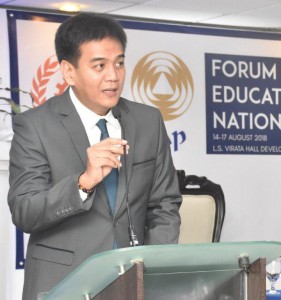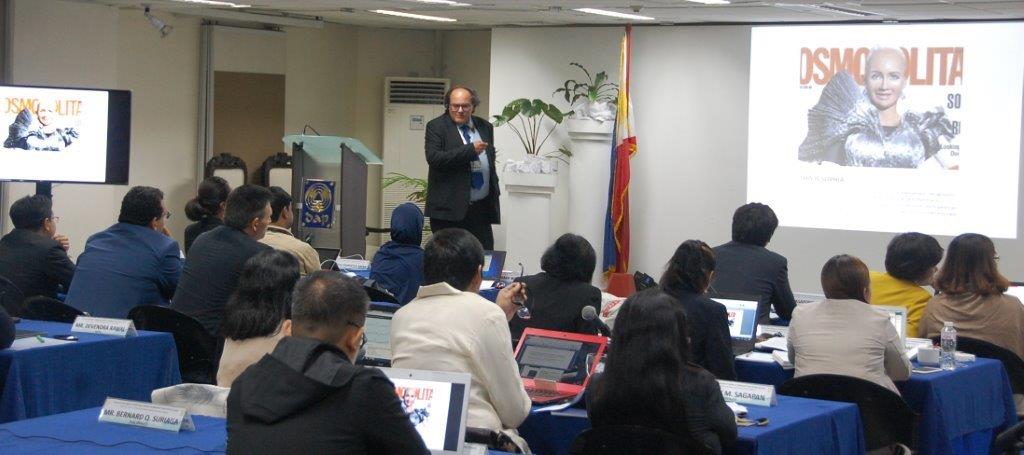
Select Page
The advent of the digital era has both pros and cons. While technology, along with improvement in educational facilities, has helped streamline operations leading to substantial productivity growth, the dynamic pace of change is impacting labor market needs by making many jobs obsolete and fundamentally altering others. This makes it imperative to reexamine the mass production-based education model.
As part of its initiative to discuss a new education model focusing on worker agility and maximizing the contributions of human capital, the Asian Productivity Organization (APO) organized a forum on the Impact of Education Policies on National Productivity Growth in Manila, 14–17 August 2018.

DAP President and CEO Engelbert Caronan, Jr. delivering opening remarks at the APO forum on the Impact of Education Policies on National Productivity Growth in Manila, 14 August 2018.
The forum, organized in association with the Development Academy of the Philippines (DAP), examined approaches to reducing skill gaps through education policies so that member countries can reap the full benefits of rapid technological advances. The fact that ever-increasing school enrollment rates have been accompanied by a slowdown in productivity gains and economic growth as well as widening income inequalities is another reason why countries must redefine their education models.
In his opening remarks, DAP President and CEO Engelbert Caronan, Jr. spoke on the importance of the forum in the context of the Philippines, where the administration emphasizes the role of education in achieving development goals as well as meeting the dynamic, rapidly changing demands of the labor market.
The forum focused on practical aspects that participants could apply in their countries, including developing action plans for refining education policies. Participants examined key issues and challenges in education, labor market dynamics, future skills, financing models for higher education, and the mechanics of collaboration between education and industries. They also deliberated on possible new education models and policies for higher and vocational education to enable APO member economies to meet future labor market needs.
Thirty-five participants from 11 APO members attended the forum, which was facilitated by six international resource persons: Professor Jandhyala B.G. Tilak, Council for Social Development, India; Professor M. Niaz Asadullah, Faculty of Economics and Administration, University of Malaysia; Dr. Chandra Shah, Affiliate, Monash University, and Adjunct Associate Professor, Centre for International Research on Education Systems, Victoria University, Australia; Associate Professor of Economics Dr. Francesco Pastore, Department of Economics, University of Campania Luigi Vanvitelli, Italy; Assistant Professor Dr. Taehee Choi, Department of Education Policy and Leadership, Education University of Hong Kong; and Senior Research Fellow Dr. Gyu-hee Hwang, Korea Research Institute for Vocational and Education Training.
